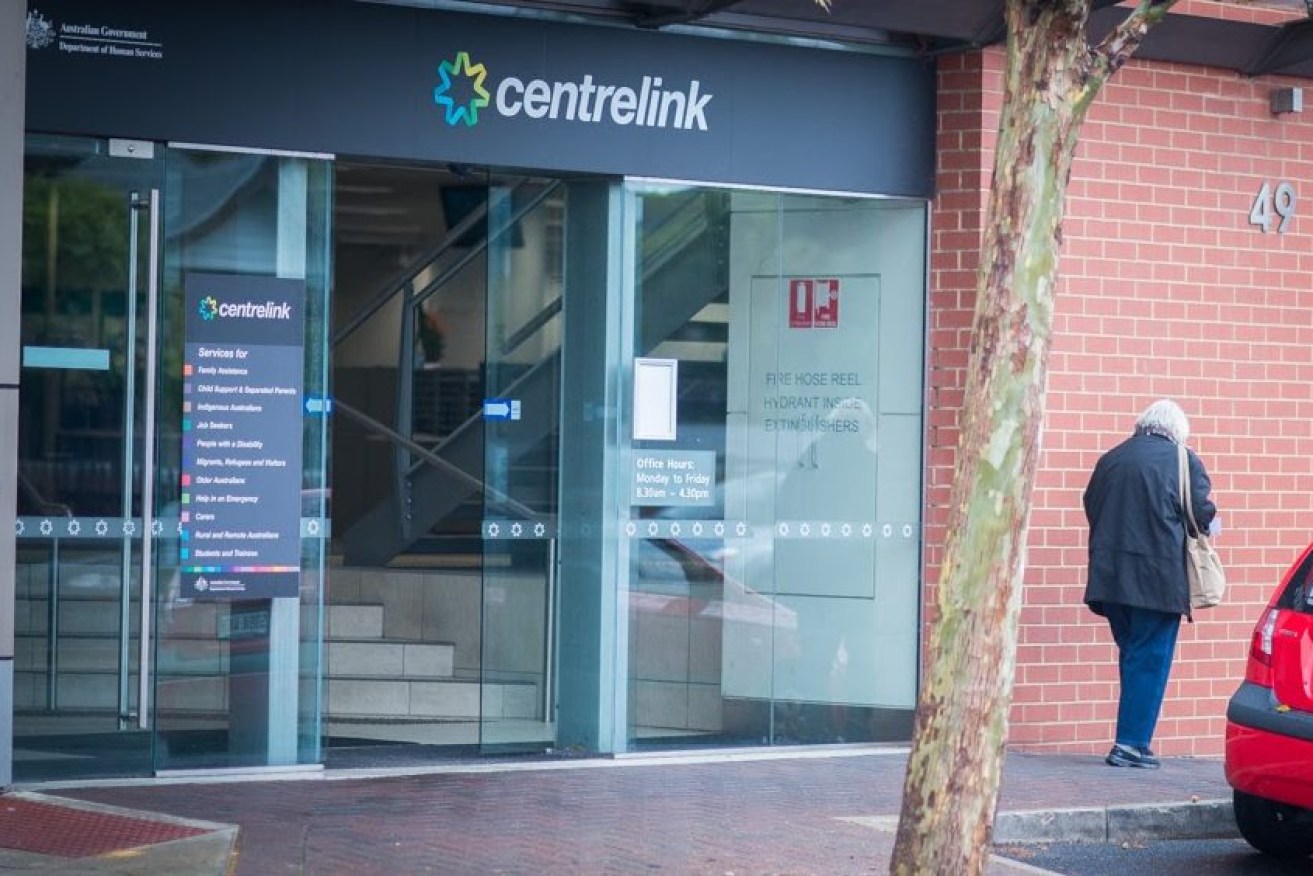You can’t age well when you’re living in poverty
Many South Australians are facing poverty as they grow older due to a combination of stagnant social support, increasing cost of living and ageism-induced unemployment.

"As the pension age gets pushed out, more people must rely on a manifestly inadequate Newstart payment for long periods." File image: Tony Lewis/InDaily
Physical preparation, including in middle age, is now well and truly associated with ageing well. There is an abundance of evidence to suggest that tackling obesity, improving diet, increasing physical activity and so on will pay dividends as we age, staving off chronic disease and offering better protection against other conditions.
What we have been much less alert to is the very real risk that poverty poses for significant numbers of older people in South Australia.
Poverty sits across the turnstile to ageing well, blocking access. It is high time we paid it similar attention.
Inequality is growing across the developed world including in Australia but it is in older age that poverty bites hardest. For many older people, it is completely unexpected and very frightening. It impacts the very fundamentals of life – work, housing, income and health.
The older people who call South Australia home are far from homogeneous. We are enormously diverse in terms of culture, health, income, wealth, location, sexuality, attitudes and priorities.
While an increasing number of South Australians want and need to work into their 60s and beyond, widespread workplace age discrimination means only one-third of people aged over 55 participate in the workforce. Unemployed older job seekers take twice as long as other age groups to find work, especially those looking for so-called “low skilled” work. This cruelly and prematurely ends many older workers’ opportunities to improve their financial circumstances before the opportunity to earn a wage closes off altogether. People spend down the resources they would otherwise set aside for their older age and are often left with their financial resources, resilience and confidence at rock bottom.
Fixed and low incomes – including the age pension – make it very difficult for people to build a buffer against volatile costs…
As the pension age gets pushed out, more people must rely on a manifestly inadequate Newstart payment for long periods. While unemployment often is considered temporary, for an increasing number of older workers subjected to ageism it can last for more than a decade and finish only when they become eligible for the age pension. People thus arrive at age pension eligibility without superannuation, without owning a home and with no opportunity to top up or create any reserves for what lies ahead. By any measure, this group of people is in entrenched and unrelenting poverty.
The age pension is very low by OECD standards, a fact that has been masked in the past by high rates of home ownership among older people and, in the absence of home ownership, good access to public housing. However, rates of home ownership are falling fast among older people. In addition, we have only about 50 per cent of previous levels of public housing stock available, with access reserved to those in dire circumstances related to domestic violence or poor mental health. The age pension is not adequate to cover private rental, nor is it enough to cover substantial residual mortgage repayments.
Fixed and low incomes – including the age pension – make it very difficult for people to build a buffer against volatile costs such as we have seen with energy prices and the emergence of a series of small but telling co-payments, fees and new requirements for living such as digital access.
Many people who become poor as they age are women. Their financial circumstances are adversely affected by lower lifetime wages (women earn on average 18 per cent less than men for the same jobs), time either out of work or in reduced hours to care for children and, increasingly, parents and grandparents, and long periods of unemployment or underemployment particularly in their 50s and 60s.
There are also particular pressures for the 26 per cent of older South Australians who live outside the metropolitan area. These people often live in communities with significantly higher age profiles, reduced family support (many families have become more mobile to find work), and diminishing banking, retail, health and transport services. Options to control costs while accessing essential services are very limited.
So what needs to happen to reduce the financial hardship for many older South Australians?
First and foremost, the current Newstart payment of $490 a fortnight needs to be increased, and COTA SA strongly supports the national campaign to add $75 per week to these payments.
We also need to pay attention to the housing needs of older people and address the growing shortage of low cost, appropriate and secure housing.
We must overturn ageism, particularly in the workplace, and improve the employment outcomes for older jobseekers.
We must ensure that Anti-Poverty Week alerts South Australians to older members of our community who often suffer silently, forgoing heating and cooling, health services and social activities just to make rent each week.
If we are serious about ageing well, we must take tangible steps to address the very real needs of older people who cannot age well because of poverty and hardship.
Jane Mussared is the chief executive of COTA SA – the peak body representing older South Australians.
This week is Anti-Poverty Week.




